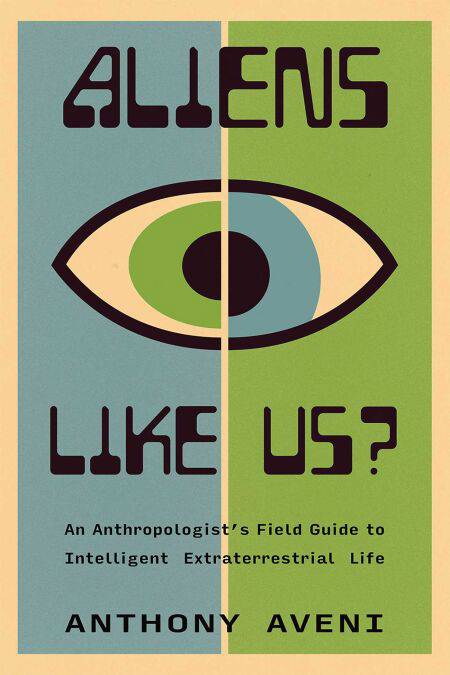
- Afhalen na 1 uur in een winkel met voorraad
- Gratis thuislevering in België vanaf € 30
- Ruim aanbod met 7 miljoen producten
- Afhalen na 1 uur in een winkel met voorraad
- Gratis thuislevering in België vanaf € 30
- Ruim aanbod met 7 miljoen producten
Zoeken
Aliens Like Us? E-BOOK
An Anthropologist's Field Guide to Intelligent Extraterrestrial Life
Anthony Aveni
E-book | Engels
€ 21,24
+ 21 punten
Uitvoering
Omschrijving
In this authoritative, accessible, and at times funny and irreverent work, distinguished anthropologist Anthony Aveni speaks to the trained astrophysicist and the curious layperson alike about a simple but previously unexplored question: Why do we assume aliens, if they are really out there, behave just like us?
Aveni’s newest work departs from the usual scientific treatment of extraterrestrial intelligence by probing the historical and widely neglected anthropological record, which offers relevant analogous incidents of contact among terrestrial cultures. Beginning with theories of the evolution of life and culture advocated by astrobiologists, Aliens Like Us? explores how the Western cultural imagination is influenced by ways of knowing that are deeply embedded in the minds of the questioners—for example, how we consider the ownership of property, the idea of progress, and even the way we classify things. The lessons of anthropology offer not only value structures from other cultures that differ profoundly from our own but also testify to the diverse ways in which "alien" cultures interact.
Finally, on the question of potential first contact, Aveni closes with a fascinating exploration of the image of extraterrestrials in popular culture that is derived in part from the hugely influential realm of science fiction.
Aveni’s newest work departs from the usual scientific treatment of extraterrestrial intelligence by probing the historical and widely neglected anthropological record, which offers relevant analogous incidents of contact among terrestrial cultures. Beginning with theories of the evolution of life and culture advocated by astrobiologists, Aliens Like Us? explores how the Western cultural imagination is influenced by ways of knowing that are deeply embedded in the minds of the questioners—for example, how we consider the ownership of property, the idea of progress, and even the way we classify things. The lessons of anthropology offer not only value structures from other cultures that differ profoundly from our own but also testify to the diverse ways in which "alien" cultures interact.
Finally, on the question of potential first contact, Aveni closes with a fascinating exploration of the image of extraterrestrials in popular culture that is derived in part from the hugely influential realm of science fiction.
Specificaties
Betrokkenen
- Auteur(s):
- Uitgeverij:
Inhoud
- Aantal bladzijden:
- 272
- Taal:
- Engels
Eigenschappen
- Productcode (EAN):
- 9780826367433
- Verschijningsdatum:
- 17/03/2025
- Uitvoering:
- E-book
- Beveiligd met:
- Adobe DRM
- Formaat:
- ePub

Alleen bij Standaard Boekhandel
+ 21 punten op je klantenkaart van Standaard Boekhandel
Beoordelingen
We publiceren alleen reviews die voldoen aan de voorwaarden voor reviews. Bekijk onze voorwaarden voor reviews.







